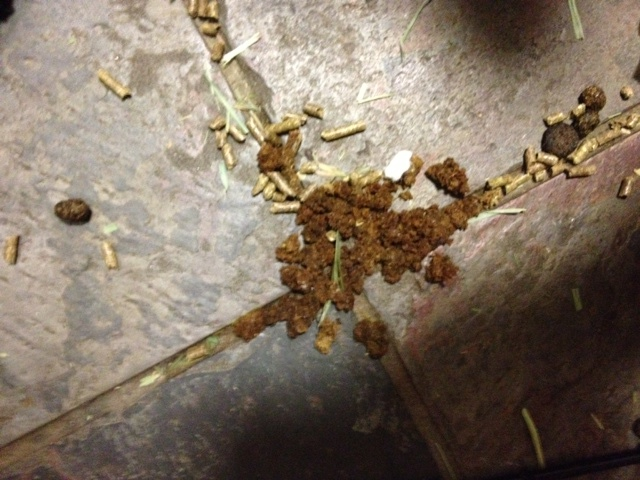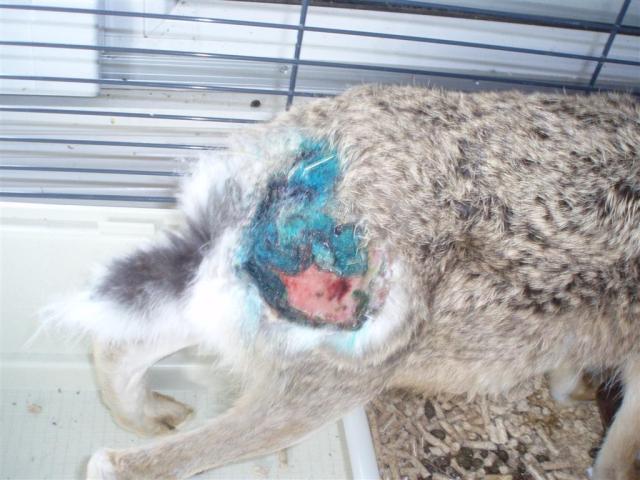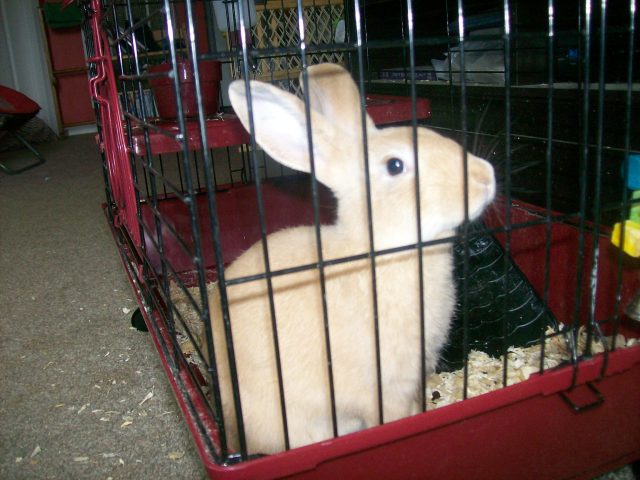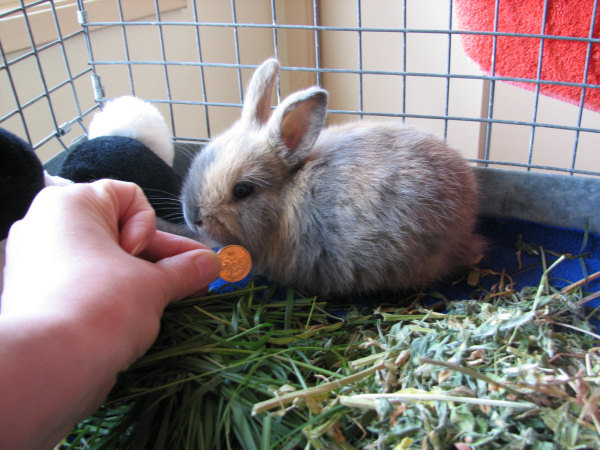Questionlast nov. we rescued two bunnies...so timid, we were afraid to pick them up, so of course, next thing we know, babies! two small litters...healthy...then mother bunny dies...she was brown, and I suspect a captured wild rabbit, although the people denied it...sexed both litters, but mudpie, a late bloomer, slipped through, and impregnated his sisters, giving us four gorgeous litters, and lots food bills!!! when the pups were about 3 weeks, we lost one brown mother, flopsy, and one tiny brown baby...all was fine till 11/21, when we lost zeus, a black/white...then on 12/01, and every day till this moment, there has been a death of at least one of these 3 month old babies...today's is lying with me as I write you...runtley was the first we found not quite gone, so we brought him in the house to observe...it was way too late for a vet...anyway...not a mark on any of the bodies, no runny nose or eyes, no gastro abnormalities, eating and drinking until the end, no pain, no signs of anything I found on the websites...we feed purina chow, and have a local hay source, whose hay we also feed the horses...although a bunny is a lot more susceptible to poisoning, I would think...my baby this morning was just lying upright on all fours, faintly rapid breathing, through nose, glassy- eyed, and semi-conscious...almost 100% unresponsive...he died in a little over an hour after coming in...no spasms, convulsions, nothing...just a couple of gasps, and he was gone...sorry to go on and on, but I have spent hours researching this, and haven't found a local vet who is an actual rabbit expert...could these babies have some genetic time-bomb type of thing, due to snowflake's being wild? so far, the majority of losses have been the brown bunnies, then the blacks...there are grey ones in two varieties [the daddy, raindrop, must come from super-varied stock], but no casualties in any greys. if you could give me something to go on, or even just sympathy, I would so welcome it...every morning, digging graves and crying, our family is so upset...these babies go so quickly...and we don't understand why one-or two-every 24 hours or so...I have cleaned out the hutches, litter pans, bowls, gotten new hay and food...what can we do now?
AnswerDear Shelly,
I am very sorry about these tragic losses. It is not likely that any wild type genes are responsible for this, and if the babies are three months old, this really doesn't sound to me like a genetic problem--especially if the babies dying are from different litters.
The sudden onset and lack of warning really sounds to me like a case of poisoning. I would stop using the hay and pellets you are now giving them, check all their surroundings for any sign of poisonous plants, evidence of pesticide or fertilizer spraying...anything they could have gotten into that might harm them.
The only way to really know what's going on is to have a necropsy done on one or more of the bodies, and it would be *very* important to have histopathology *and* toxicology testing done on major tissues such as liver, lungs, kidneys, heart, and intestines. When you see a baby start to fail, get him to the vet immediately for bloodwork and possible emergency supportive care to save him. Even with poisoning, there may be ways to reverse the shock (e.g., activated charcoal and/or Questran to absorb toxins in the intestines and other medications (e.g., lactulose, chelating agents) the vet can give to remove toxins from the other tissues of the body.
But without a necropsy, I fear you will not be able to get to the root of this and find out what's going on. Any vet can do a necropsy and take samples to send to a lab--s/he doesn't need to be a rabbit expert.
But for your surviving bunnies, please use the list linked here:
www.rabbit.org/vets
and perhaps take the babies there now for a full wellness check, bloodwork, etc. to see if something can be nipped in the bud.
I am sorry for these terrible losses, but I hope with a bit of quick detective work and a good vet, you can stop them now.
I hope this helps.
Dana

 Abnormal Fecal Matter in Bun
Question
Abnormal Poos
My 2-year old Lionhead ju
Abnormal Fecal Matter in Bun
Question
Abnormal Poos
My 2-year old Lionhead ju
 European brown hare syndom virus - Rabbit and hare shelter from Croatia
QuestionInjury
QUESTION: Hello Dana, please answ
European brown hare syndom virus - Rabbit and hare shelter from Croatia
QuestionInjury
QUESTION: Hello Dana, please answ
 Bunny breed...not breeding
Question
Lola Bunny
Hello there! Im a proud momm
Bunny breed...not breeding
Question
Lola Bunny
Hello there! Im a proud momm
 Rabbits and foxes
QuestionQUESTION: Hello, Im interested in getting rabbi
Rabbits and foxes
QuestionQUESTION: Hello, Im interested in getting rabbi
 Orphaned domestic bunny
Question
4-5 weeks???
Just wondering if Critical Care f
Orphaned domestic bunny
Question
4-5 weeks???
Just wondering if Critical Care f